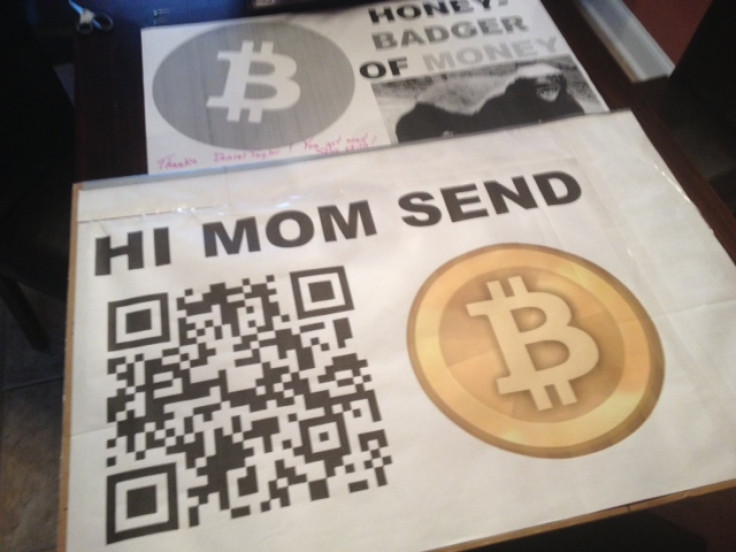MIT Students Raise $500,000 In Bitcoin Only To Give It Away To Undergraduate Students This Fall

Aiming to fuel the rise of bitcoin by getting it into the hands of early adopters, two students at Massachusetts Institute of Technology will give $100 worth of the cryptocurrency to every one of the elite research school’s 4,528 undergraduates this fall.
Dan Elitzer, a first-year MIT MBA student and founder of the MIT Bitcoin Club, and Jeremy Rubin, an MIT computer science sophomore, announced Tuesday that they will give each undergraduate student $100 worth of the controversial currency when the fall semester starts and track how they spend it.
Elitzer told International Business Times the pair raised $500,000 for their MIT Bitcoin Project through MIT alumni and the bitcoin community. The amount raised “will cover the distribution ...to the students as well as infrastructure and informational activities related to the initiative,” the project announcement reads.
“It’s .. powerful to have the entire MIT student body doing one thing,” Elitzer said to IBTimes.
Elitzer and Rubin want to create an ecosystem for digital currencies at MIT, which might be tough given there are only two restaurants that accept bitcoin in the Cambridge, Mass., area, according to Elitzer, and much like the Economic Stimulus Act of 2008, the two MIT students want to inject new funds into the hyperlocal economy using bitcoin instead of cash.
Disseminating the currency is just the first step.
“Giving bitcoin isn’t enough, you also have to educate,” Elitzer said.
Before the school year begins, the bitcoin club members will go out into the community and meet with local establishments, encouraging the adoption of the currency. The hope is that by the time the bitcoins are dispersed students will have a place to spend them, both locally and globally. Major retailers like Overstock.com and Tigerdirect.com already accept bitcoins, among many others.
The organizers don’t fully know how students will use their newly acquired bitcoins. Elitzer admits that some students will most likely exchange the coins for cash, basically opting out of the bitcoin community. However, he doesn’t believe that the majority of students will do that; Elitzer is hopeful that the bitcoin protocol will inspire greatness. “MIT is the best place to be doing this,” Elitzer said, explaining that MIT students are “driven to impact the world more broadly.”
They have a few months to figure out the dissemination process and how to track the bitcoin-spending activity, especially given bitcoin’s built-in anonymity feature, but Elitzer has a rough idea of how to overcome these issues.
“It will be some combination of the public blockchain, the living labs, surveys and self-reporting,” Elitzer said, making a reference to the MIT Living Labs, where researchers develop, deploy and test new technologies in living environments.
After all, Elitzer points out, MIT is full of early adopters. He looks forward to seeing “what the future might be like with bitcoin adopted.”
The MIT Bitcoin Club, alongside the national College Cryptocurrency Network, a group of 15 college bitcoin clubs dedicated to cryptocurrency education and proliferation, is holding the MIT Bitcoin Expo on Saturday, May 3, to help inform students and interested parties about the MIT Bitcoin Project. Speakers will include Gavin Andresen, Chief Scientist and Board Member of the Bitcoin Foundation, and Ryan X. Charles, Software Engineer at BitPay, among others.
© Copyright IBTimes 2024. All rights reserved.











